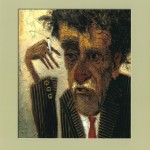In Books Besides the Bible, Ethan Bartlett considers the value and pleasure of reading for Christians.
“Late in the winter of my seventeenth year, my mother decided I was depressed, presumably because I rarely left the house, spent quite a lot of time in bed, read the same book over and over, ate infrequently, and devoted quite a bit of my abundant free time to thinking about death.” So begins Printz award-winning author John Green’s latest novel, The Fault in Our Stars.
The novel is narrated by Hazel, a 17-year-old with the sort of cancer that leaves her death a matter not of if, but of when. Despite her mother’s concerns, Hazel has made as much peace with this as she can. Then she meets Augustus Waters, a devilishly handsome, incredibly odd young man. The romance that ensues is not the story of two kids with cancer and a tragic attraction. It is a story about two people falling in love.
At the same time, the book is almost a deconstruction of the “cancer kid” genre. Much of the metaphor is self-consciously provided by Augustus; one of the first things we find out about him is that he carries around a pack of cigarettes in order not to smoke them. “You put the killing thing right between your teeth,” he explains, “but you don’t give it the power to do its killing.”
Meanwhile, much of the book’s intellect comes from Peter van Houten, the favorite novelist of Augustus and Grace. Of course, in person van Houten turns out to be a jerk, but he sounds some of the intellectual themes Green is exploring. The novel’s title is antithesis to a line from Shakespeare’s Julius Caesar: “The fault, dear Brutus, lies not in our stars, but in ourselves.” Van Houten responds that “there is plenty of fault to be found amid our stars.”
Yet with all of the noise generated by the characters of Augustus and van Houten, and despite the shadow cast by Green himself as a very particular sort of author (the words “cult following” come immediately to mind), we never lose the voice of Hazel. She is a believable character: smart, intellectual, witty, odd, emotional—and faced daily with the fact that she is not going to outlive her parents.
It can be easy to manipulate a story like this, to play it for the very real emotions in the subject while skipping over things like characterization. Green never does this. While at the end of the book I felt like someone had reached into my heart and twisted some things around (which is how Green’s novels usually make me feel), I felt this because terrible things were happening to real people, not because I knew that terrible things happen.
If I have a problem with The Fault in Our Stars, it is that while the novel asks big questions—creating characters who face death daily is a marvelous way to ponder mortality—the answers it explores are, in a word, trite. I realize that platitudes about the immutability of energy and belief in a “capital-S Something” are the result of honest searching for truth. I realize further that they are an accurate reflection of our age. But, possibly because I am a member of an old-fashioned religion, I prefer the religious mish-mash in Salinger’s Franny and Zooey or even the World Religions roundup in Green’s own Looking for Alaska to the studied secularist approach in The Fault in Our Stars. The closest thing this book gets to touching old-fashioned religion involves ceremonies and support groups that seem hollow and off-hand references to the possibility of belief in an afterlife that involves white robes, singing, and flitting from cloud to cloud.
Why would someone from an old-fashioned religion want to read Green’s book? Literature, ultimately, is best at asking questions. The Fault in Our Stars asks the right questions. In a society whose answer to mortality is often to ignore it, or to try to reverse it, Green has written an honest, searing, searching novel which forces its readers to ask two of the most important questions: What happens after death? And what should we do in the meantime?















